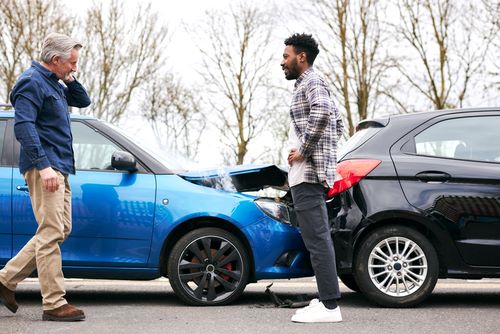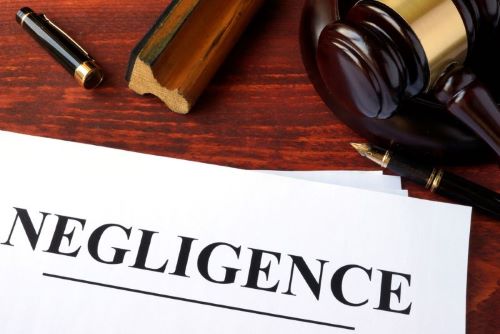Even people who don’t know much about the law understand that the rear driver is almost always responsible for a car accident. For the most part, this is true. Most of the time, the person in the second car is held liable for any damages caused by a rear-end collision. Of course, that isn’t always the case. A car wreck lawyer in Charlotte sees a lot of cases where the rear driver is deemed the victim. It all depends on the facts of the case. If you aren’t sure, you can always give us a call and schedule your free, initial consultation.
Here, we’ll discuss how fault is determined in a rear-end collision. We’ll also discuss what kind of damages you can receive if you’re able to prove fault in your case.
What is a Rear-End Collision and How Do They Usually Happen?
Most of the time, a rear-end collision occurs when people are in bumper-to-bumper traffic. All it takes is the rear driver hitting the gas a second too soon and they end up crashing into the back of the car in front of them.
Other times, we see these crashes take place at a red light. If the car in front of you slams on their brakes at a red light, you may not be able to stop in time. Even if you hit your brakes, it may be too little too late. If the light was already red at the time, you should’ve expected to put on the brakes. However, if the car in front of you acted like they were going to go through the intersection and then changed their mind, they would be held responsible.
In order to prove fault, one of the drivers will have to demonstrate that the other driver was negligent. The good news is that the best personal injury attorneys in Charlotte know how to do this.
Your Car Wreck Lawyer in Charlotte Needs to Prove the Defendant Was 100% at Fault
In most car accident cases, it’s hard to prove that just one person was at fault. Normally, as long as you can prove that the defendant was more than 50% at fault, you should be able to collect damages. This is because most states follow something called the comparative negligence rule. Under this rule, a plaintiff who is partially at fault can still collect damages. The only difference is that their damages will be reduced by their percentage of fault.
For example, imagine you were involved in a minor fender bender in Georgia. The defendant was primarily at fault, but since your brake lights weren’t working properly, you were found to be 20% at fault. Your initial demand of $100,000 would be reduced to $80,000.
It doesn’t work that way in North Carolina. Unfortunately, North Carolina follows a different rule called the pure contributory negligence rule. Under this rule, if you’re found to be even 1% at fault for your rear-end collision, you can’t collect a dime from the defendant. North Carolina is one of the very few states that still follow this rule. However, this can make it very difficult for you to sue someone for a rear-end collision in Charlotte.
How Do the Best Personal Injury Attorneys in Charlotte Prove Negligence?
To prove negligence, your car wreck lawyer in Charlotte will need to demonstrate all four elements of negligence. Essentially, they need to prove that the defendant didn’t behave the way a reasonable person would have given the circumstances.
The four elements of negligence include the following:
Duty of Care
Proving that the other driver owed you a duty of care shouldn’t be difficult. All drivers owe a certain duty of care toward other motorists. The fact that you’re sharing the road with other people creates an inherent duty of care.
Breach of Duty
This is the hardest part of your case to prove. It’s not enough to show that the two of you were involved in a rear-end collision. You must also prove that the defendant did something to breach their duty of care. One way to do this is to submit proof that they were issued a ticket at the crash scene.
For instance, if the other driver was cited for DUI at the scene, this can serve as evidence that they breached their duty of care. Since North Carolina is so strict about fault, even the best personal injury attorneys in Charlotte can have a hard time proving this element of negligence.
Injury
You must also demonstrate that you suffered an injury. This can be a physical injury or a financial one. If your car was damaged or destroyed in your rear-end collision, that may be enough to prove negligence.
However, most car wreck lawyers in Charlotte wouldn’t take a case that only involved a few thousand dollars in auto repairs. Typically, you will have suffered a physical injury as well. This is the only way you would qualify for pain and suffering damages and that’s where you’ll see the majority of your damages.
Causation
You must demonstrate that the defendant’s breach of duty caused your injuries. Again, this can be difficult to prove. As long as you went to the hospital immediately after your rear-end collision, it may not be all that hard. Your attorney will submit proof of your injuries using your medical records. As long as the defendant’s lawyer can’t prove that something other than the rear-end collision caused your injuries, you should be okay.
If you’re able to prove all four of these elements, you should have a good chance of collecting damages. As long as the defendant can’t prove that you were partially at fault, there shouldn’t be an issue.
How Could You Be Held Partially Responsible for a Rear-End Collision?
It may seem odd that somebody could hold the front driver responsible for a rear-end collision. However, it does happen. Our car wreck lawyers in Charlotte see this happen every week in court. A plaintiff sues another driver for damages sustained in a rear-end collision and the court ends up dismissing the case.
If the defendant can show that you’re just 1% at fault, your case may be dismissed. It all depends on the facts of the case. Some of the things the defendant’s lawyer may bring up include the following:
- You slammed on your brakes at the last minute
- You stopped for no good reason. For example, you may have abruptly stopped in the middle of an intersection.
- Your brake lights weren’t working at the time of the crash.
- You were trying to make an illegal turn.
- You were in violation of one of the local traffic laws
If you fear this may be an issue in your rear-end collision case, call and talk to one of our car wreck lawyers in Charlotte right away. We can schedule your free consultation right over the phone. With so much at stake, you don’t want to wait too long to meet with the best personal injury attorney in Charlotte.



